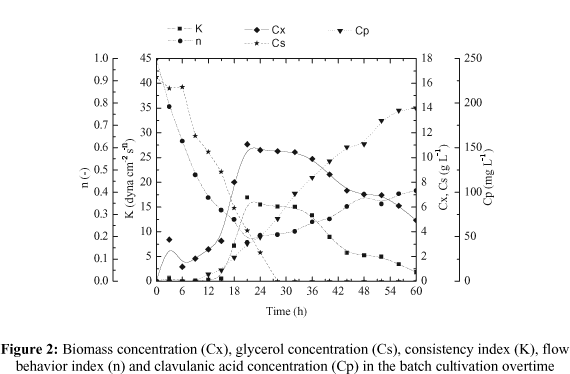Clavulanic acid (CA) is a potent inhibitor of beta-lactamases, enzymes that are responsible for the hydrolysis of beta-lactam antibiotics. It is a secondary metabolite produced by the filamentous aerobic bacterium Streptomyces clavuligerus in submerged cultivations. In the present work clavulanic acid production in batch, fed-batch and continuous bioreactors was studied with the objective of increasing productivity. The operating conditions: temperature, aeration and agitation, were the same in all cases, 28º C, 0.5 vvm and 800 rpm, respectively. The CA concentration obtained in the fed-batch culture, 404 mg L-1, was ca twice the value obtained in the batch culture, 194 mg L-1, while 293 mg L-1 was obtained in the continuous culture. The highest productivity was obtained in the continuous cultivation, 10.6 mg L-1 h-1, as compared with 8.8 mg L-1 h-1 in the fed-batch process and 3.5 mg L-1 h-1 in the batch process, suggesting that continuous culture of Streptomyces clavuligerus is a promising strategy for clavulanic acid production.
Clavulanic acid; Bioreactors; Enzymes







